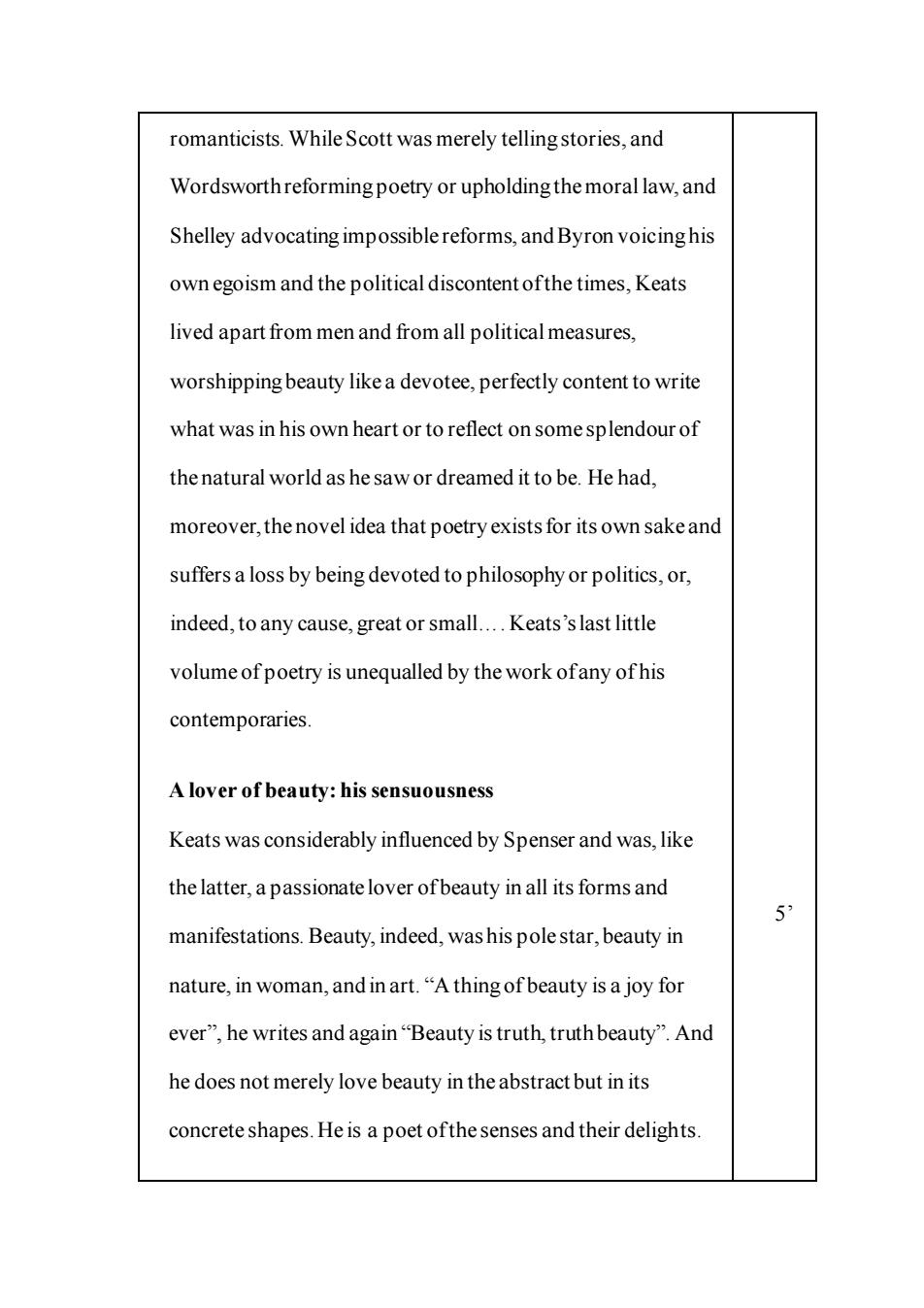正在加载图片...

romanticists.WhileScott was merely tellingstories,and Wordsworthreforming poetry or upholdingthe moral law,and Shelley advocating impossible reforms,and Byron voicinghis own egoism and the political discontent ofthe times,Keats lived apart from men and from all political measures, worshipping beauty likea devotee,perfectly content to write what was in his own heart or to reflect on some splendour of thenatural world as he saw or dreamed it to be.He had, moreover,the novel idea that poetry exists for its own sakeand suffers a loss by being devoted to philosophy or politics,or, indeed,to any cause,great or small.Keats'slast little volume of poetry is unequalled by the work ofany of his contemporaries. A lover of beauty:his sensuousness Keats was considerably influenced by Spenser and was,like the latter,a passionate lover ofbeauty in all its forms and manifestations.Beauty,indeed,washis polestar,beauty in nature,in woman,and in art."A thing of beauty is a joy for ever",he writes and again"Beauty is truth,truth beauty".And he does not merely love beauty in theabstract but in its concrete shapes.He is a poet ofthe senses and their delights.romanticists. While Scott was merely telling stories, and Wordsworth reforming poetry or upholding the moral law, and Shelley advocating impossible reforms, and Byron voicing his own egoism and the political discontent of the times, Keats lived apart from men and from all political measures, worshipping beauty like a devotee, perfectly content to write what was in his own heart or to reflect on some splendour of the natural world as he saw or dreamed it to be. He had, moreover, the novel idea that poetry exists for its own sake and suffers a loss by being devoted to philosophy or politics, or, indeed, to any cause, great or small. Keats’s last little volume of poetry is unequalled by the work of any of his contemporaries. A lover of beauty: his sensuousness Keats was considerably influenced by Spenser and was, like the latter, a passionate lover of beauty in all its forms and manifestations. Beauty, indeed, was his pole star, beauty in nature, in woman, and in art. “A thing of beauty is a joy for ever”, he writes and again “Beauty is truth, truth beauty”. And he does not merely love beauty in the abstract but in its concrete shapes. He is a poet of the senses and their delights. 5’